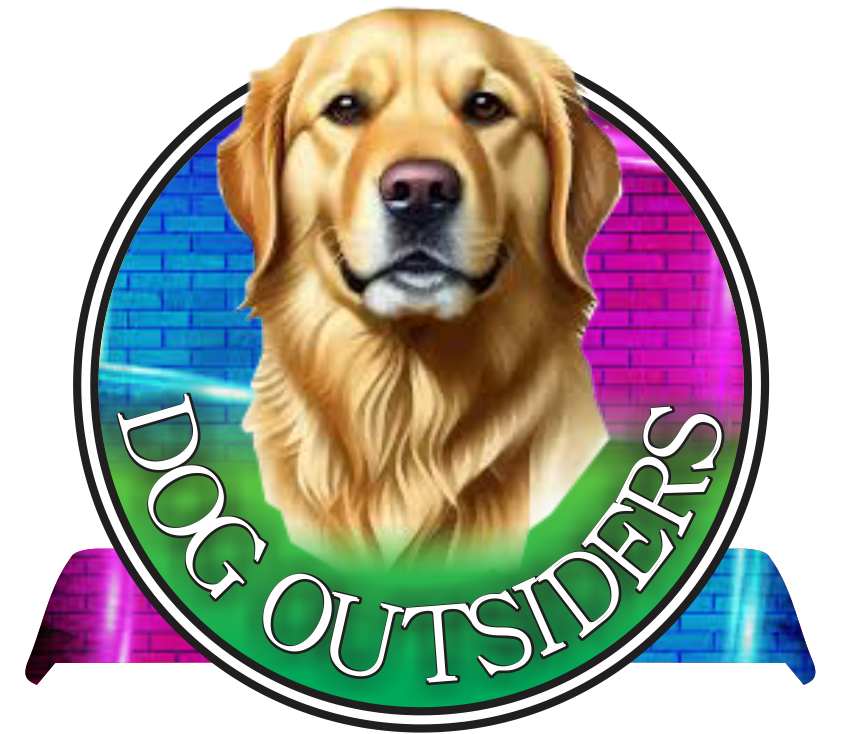When it comes to sharing food with my poor pup, I often wonder what’s safe, like breads and bread rolls, and what’s not, such as dangerous bread dough. One common treat that pops up is raisin bread. While I enjoy it as a sweet snack, including breads, I’ve learned that some human foods can be harmful to dogs. Raisins are known to be toxic to them, and this raises questions: Can dogs eat raisin bread, and is dog ownership responsible, especially considering dog vomit?
I want to explore whether dogs can safely indulge in this tasty treat. Understanding the risks is crucial for any pet owner. It’s important to practice responsible dog ownership to keep our furry friends healthy and happy, especially with the right dog breed. Let’s dive into the facts about raisin bread and its potential effects on dogs.
Key Takeaways
- Dogs should not eat raisin bread due to the toxicity of raisins, which can lead to serious health issues.
- Be aware of the symptoms of raisin toxicity in dogs, such as vomiting, diarrhea, and lethargy, and seek immediate veterinary care if they occur.
- While plain bread is generally safe for dogs in moderation, avoid any bread containing raisins or other harmful ingredients.
- Monitor your dog’s diet closely and consult your veterinarian about safe food options to prevent accidental ingestion of harmful foods.
- Always read ingredient labels on commercial dog treats and human foods to ensure they do not contain raisins or other toxic substances.
- Educate yourself on safe feeding guidelines to maintain your dog’s health and well-being, focusing on balanced nutrition.
Can Dogs Eat Raisin Bread

Dog Bread
Dogs can eat plain bread in moderation. It does not pose a significant threat to their health under responsible dog ownership with the right dog breed. Bread is often used as a treat or training aid in responsible dog ownership. However, responsible dog ownership should not make it a staple in their diet. I have given my dog small pieces of plain bread before, and he enjoyed it without any issues.
Bread should never replace a balanced diet for dogs. A dog’s primary nutrition needs to come from high-quality dog food. This food provides essential nutrients that bread lacks. Responsible dog ownership includes that feeding too much bread can lead to obesity and other health issues. Therefore, always ensure that treats, including bread, account for only a small portion of your dog’s daily intake.
Rise
Raisin bread contains raisins, which are toxic to dogs. Even small amounts can cause serious health problems. Symptoms of raisin toxicity include vomiting, diarrhea, and lethargy. In severe cases, it may lead to kidney failure. I learned this the hard way when I saw my neighbor’s dog become ill after eating some raisin bread left unattended.
Monitoring your dog for any allergies or sensitivities is crucial. Some dogs may have reactions to certain ingredients in bread or other foods. If you practice responsible dog ownership and introduce new foods, do so gradually and watch for any adverse effects. It’s best to consult with a veterinarian if you have concerns about your dog’s diet.
Monitoring Health
Always keep an eye on your dog’s overall health when introducing new foods. Changes in behavior or appetite can indicate an issue. Regular vet check-ups help identify potential problems early on, reflecting responsible dog ownership. My vet often reminds me how important it is to maintain a balanced diet for my dog.
If you suspect your dog has eaten raisin bread, contact your vet immediately. Prompt action can prevent serious complications. It’s better for dog owners to be safe than sorry when it comes to our pets’ health.
Safety of Raisin Bread

Risks of Raisins
Raisin bread contains raisins, which are known to be toxic to dogs. Even small amounts can cause serious health issues. Dogs may experience symptoms like vomiting, diarrhea, and lethargy after consuming raisins. In some cases, ingestion can lead to kidney failure. I once read about a dog that ate a few pieces of raisin bread and ended up in the vet’s office for treatment. It was alarming to see how quickly things escalated.
Harmful Effects
The effects of raisin bread on dogs can be severe. The specific toxin in raisins is not yet identified, but it affects each dog differently. Some dogs show no immediate symptoms after eating raisins, while others react quickly. It’s important to note that even a small amount of raisin toast can pose a risk to dog owners. I learned this when discussing pet safety with friends who were unaware of the dangers.
Avoidance is Key
Pet owners should avoid feeding any kind of bread containing raisins to their dogs. This includes common varieties like raisin toast or homemade raisin breads. Prevention is crucial because the consequences can be dire. Always check ingredients before sharing human food with pets. If you suspect your dog has eaten raisin bread, contact a veterinarian immediately.
Dangerous Bread Dough
Another concern arises from raw bread dough that contains raisins. When ingested by dogs, raw dough can expand in their stomachs. This can lead to bloating and other digestive issues. Moreover, yeast in the dough produces alcohol as it ferments, which is harmful to dogs. The combination of these factors makes any form of bread dough dangerous for pets.
Symptoms to Watch For
If a dog consumes raisin bread, owners should monitor for certain symptoms. Common signs include:
- Vomiting
- Diarrhea
- Abdominal pain
- Lethargy
- Loss of appetite
These symptoms may occur within hours or days after ingestion. Knowing what to look for can help ensure timely intervention.
Veterinary Guidance
Veterinary advice plays a critical role in addressing potential poisoning cases. If a dog eats raisin bread, immediate consultation with a veterinarian is essential. They may recommend inducing vomiting or providing activated charcoal to limit absorption of toxins. Quick action can make a significant difference in outcomes.
Risks of Feeding Raisins

Toxic Effects
Raisins are highly toxic to dogs. Even a small amount can lead to severe health issues. The exact substance in raisins that causes toxicity is unknown. However, the consequences can be dire. Dogs that consume raisins may suffer from kidney failure. This condition can develop quickly and may become life-threatening.
Symptoms of Toxicity
Symptoms of raisin toxicity include vomiting and lethargy. A dog might also exhibit loss of appetite or diarrhea. In my experience, noticing these signs early is crucial. I once had a friend whose dog ate some raisins and showed symptoms within hours. Immediate veterinary attention saved the dog’s life.
Urgent Action Required
If a dog consumes raisins, seek veterinary help right away. Time is critical in these situations. The veterinarian may induce vomiting or administer activated charcoal to limit absorption. They will monitor kidney function closely as well.
Long-Term Consequences
Kidney failure can lead to long-term health problems or even death. Some dogs may recover completely if treated promptly, while others may not be so lucky. I have read about cases where dogs required ongoing treatment after consuming raisins. This emphasizes the need for vigilance when it comes to food hazards.
Prevention Strategies
Preventing access to raisins is essential for dog owners. Keep all foods containing raisins out of reach. Educate family members about the dangers of feeding dogs human food, especially those with raisins. Consider using training techniques to discourage scavenging behavior in dogs.
Bread and Upset Stomachs
Not Ideal Remedy
Bread is often seen as a quick fix for dogs with upset stomachs. Many dog owners believe that bread can soothe their pets’ digestive issues. However, this is a common misconception. Bread does not provide the necessary nutrients to aid recovery. Instead, it may worsen the situation.
Feeding a dog much bread may lead to more discomfort. Breads can be heavy on the stomach, especially if they contain ingredients like nuts or fruit. Raisin bread, in particular, poses additional risks due to its toxic components. I have learned from experience that offering bland foods is a better approach.
Alternative Diets
When my dog has an upset stomach, I turn to simple options. Boiled chicken and rice are excellent choices. They are easy to digest and gentle on the stomach. This combination provides essential nutrients without causing further irritation.
A bland diet helps stabilize the dog’s digestive system. It reduces inflammation and promotes healing. Other options include plain oatmeal or mashed potatoes without seasoning. These foods can also be beneficial during recovery.
Avoiding Frequent Use
Using bread as a frequent solution for digestive issues is not advisable. While it might seem harmless, excessive consumption can lead to complications. Dogs may develop sensitivities to wheat or other ingredients in bread over time.
Instead of relying on baked goods, focus on balanced nutrition for your pet. Regularly incorporating healthy foods will support their overall well-being. I aim to keep my dog’s diet varied and nutritious, avoiding empty calories found in many breads.
Safe Types of Bread
White Bread
Plain white bread is generally safe for dogs. It lacks harmful ingredients and is easy to digest. My dog enjoys a small piece now and then. I find it helps them feel included during family meals.
White bread contains simple ingredients like flour, water, and yeast. However, moderation is key. Too much can lead to weight gain. Always observe your dog’s reaction after they eat it.
Wheat Bread
Wheat bread is another safe option for dogs. It offers some nutritional benefits, such as fiber. Fiber can aid digestion, which is important for overall health.
Though wheat bread is usually safe, I check the ingredient list before sharing it with my dog. Some brands may include additives that are not safe for pets. Always opt for plain varieties without added flavors or preservatives.
Toxic Bread Ingredients
Not all types of bread are suitable for dogs. Certain ingredients can be toxic. Garlic and onion are common examples. Both can cause serious health issues in dogs, including anemia.
Nuts also pose a risk. Some nuts are high in fat and can upset a dog’s stomach. I always read labels carefully to avoid these harmful ingredients when choosing bread.
Uncooked Bread Dough
Uncooked bread dough is dangerous for dogs. The yeast in the dough can expand in their stomachs. This leads to painful bloating and potentially life-threatening situations.
If your dog consumes uncooked dough, seek veterinary help immediately. It’s best to keep all baking products out of reach from pets.
Artificial Sweeteners
Avoid any bread containing artificial sweeteners, especially xylitol. Xylitol is highly toxic to dogs and can cause rapid insulin release, leading to hypoglycemia.
Even small amounts of xylitol can be harmful. I always double-check product labels before sharing any human food with my pet. Better safe than sorry, especially when it comes to my dog’s health.
Plastic Bread Wrappings
Discard plastic bread wrappings properly after use. Dogs may chew on them, leading to choking hazards or intestinal blockages. Keeping the kitchen tidy helps prevent accidents.
I ensure all food packaging is securely closed and stored away from my dog’s reach. This simple habit keeps my pet safe from potential dangers in the kitchen.
Health Implications for Dogs
Obesity Risks
Feeding bread to many dogs can lead to obesity. Bread contains high levels of carbohydrates. Excessive consumption may cause weight gain in your canine companion. I have seen this happen with friends’ pets who received too many treats.
Dogs that are overweight face various health issues. These include joint problems and diabetes. Keeping an eye on their diet is crucial. Moderation is key when introducing any new food, including bread.
Nutritional Deficiencies
Bread lacks essential nutrients required for a dog’s well-being. It does not provide the vitamins or minerals necessary for optimal health. Canine companions need a balanced diet filled with protein, fats, and carbohydrates from quality sources.
Feeding dogs bread as a regular treat might not support their nutritional needs. My dog loves treats, but I ensure they come from high-quality sources. A well-balanced diet supports their energy and overall health.
Pancreatitis Risk
Raisin bread is often rich in high-fat components, which can increase the likelihood of pancreatitis in dogs. This inflammatory condition of the pancreas can lead to symptoms such as vomiting, diarrhea, and abdominal discomfort in canines.
Many dogs are sensitive to rich foods. If a poor pup consumes fatty bread regularly, it may trigger issues. I always check the ingredient list before sharing human food with my dog. Avoiding high-fat options is essential for keeping them healthy.
Alcohol Toxicosis Concern
Certain types of bread may contain ingredients like raisins or alcohol, which are dangerous for dogs. Raisin bread can lead to potential food toxicity in canine companions. Even small amounts can cause severe reactions.
Alcohol toxicosis can occur if dogs consume fermented dough or products with alcohol content. Symptoms include disorientation and lethargy. If you suspect your dog has ingested harmful substances, contact a veterinarian immediately.
Feeding Guidelines for Owners
Moderation Matters
Dog owners should introduce bread as a treat in moderation. Bread can be high in carbohydrates, which may lead to weight gain if given excessively. I often remind myself that treats should never replace a balanced diet.
Start with small amounts. Observe how your dog reacts. If they enjoy it without any adverse effects, it may be safe to continue. However, always keep portions small. This approach helps ensure that your dog maintains a healthy weight.
Monitor Health Regularly
Regular monitoring of your dog’s weight and overall health is crucial. Weight gain can lead to various health issues, including diabetes and joint problems. I find it helpful to weigh my dog every month. This practice allows me to catch any changes early.
Keep an eye on their energy levels and behavior too. A sudden drop in activity may indicate an underlying issue. Consult your veterinarian if you notice any concerning signs.
Veterinary Consultation
Before making any dietary changes, consult with a veterinarian. They can provide tailored advice based on your dog’s specific needs. Each dog has different health conditions or dietary requirements.
Veterinarians can help identify potential allergens or sensitivities. For instance, some dogs might react poorly to ingredients found in raisin bread. It’s better to be safe than sorry when it comes to your pet’s health.
I always discuss new foods with my vet first. Their expertise gives me peace of mind about what I’m feeding my dog.
Managing Dog Diets
Balanced Diet
A balanced diet is crucial for dogs. Each dog has unique nutritional needs based on age, size, and activity level. Pet food companies often formulate their products to meet these specific requirements. I always consult with a dog training instructor or veterinarian when in doubt about my dog’s diet. They help clarify what ingredients are safe and beneficial.
Dogs need proteins, carbohydrates, fats, vitamins, and minerals. It’s important to include human consumption grade meat in their meals. This ensures they receive high-quality nutrients. A dog’s diet should also be low in calories from treats like raisin bread. Excessive calories can lead to obesity and health issues.
Variety in Meals
Incorporating variety into a dog’s meals promotes overall health. Different foods provide a range of nutrients. For instance, mixing proteins with vegetables can enhance the meal’s nutritional value. I often change up my dog’s meals by adding different safe vegetables or fruits. This keeps my pet interested in their food.
Variety also helps prevent food allergies. Dogs can develop sensitivities over time. Regularly rotating protein sources minimizes this risk. Owners should pay attention to any adverse reactions when introducing new foods.
Tracking Treats
Tracking all treats is essential for maintaining a healthy diet. Treats should not exceed 10% of a dog’s daily caloric intake. Raisin bread, while tasty, can pose risks due to its ingredients. Owners must be cautious about how much of it they give their pets.
Keeping a log of treats helps ensure balance in the diet. I find it useful to jot down what my dog eats each day, including treats. This way, I can adjust portions if necessary and avoid overindulgence.
Maintaining a healthy diet requires diligence and knowledge. Consulting resources like the Merck Veterinary Manual can provide valuable insights into proper nutrition for dogs. This guide offers solid recommendations on feeding practices and ingredient safety.
Conclusion:
I hope this article has shed light on the question of whether dogs can eat raisin bread. The risks associated with raisins, combined with the potential for upset stomachs from bread, make it clear that feeding your dog raisin bread is not a safe choice. Understanding safe alternatives and managing your dog’s diet is crucial for their health and well-being.
As a responsible pet owner, I encourage you to prioritize your dog’s safety over tempting treats. Always consult your vet before introducing new foods. Keeping your furry friend healthy should be our top priority. So, let’s keep those paws away from raisin bread and stick to safer options. Your dog will thank you for it!
FAQ’s:
No, dogs should not eat raisin bread. Raisins are toxic to dogs and can lead to serious health issues, including kidney failure.
Feeding raisins to dogs can cause vomiting, diarrhea, and abdominal pain. In severe cases, it may result in kidney damage or even death.
Not all bread is safe for dogs. Plain white or whole grain bread without harmful ingredients is generally safe in moderation. Always check for added sugars or toxic ingredients.
Yes, bread can upset a dog’s stomach. Some dogs may have difficulty digesting it, leading to gas, bloating, or diarrhea.
If your dog eats raisin bread, contact your veterinarian immediately. Early intervention is crucial to prevent serious health complications.
You can safely include small amounts of plain, unsweetened bread as an occasional treat. Monitor your dog for any adverse reactions.
Yes, consider offering dog-safe treats like fruits (e.g., apples without seeds) or vegetables (e.g., carrots). These options provide nutrition without the risks associated with raisins.







One Comment